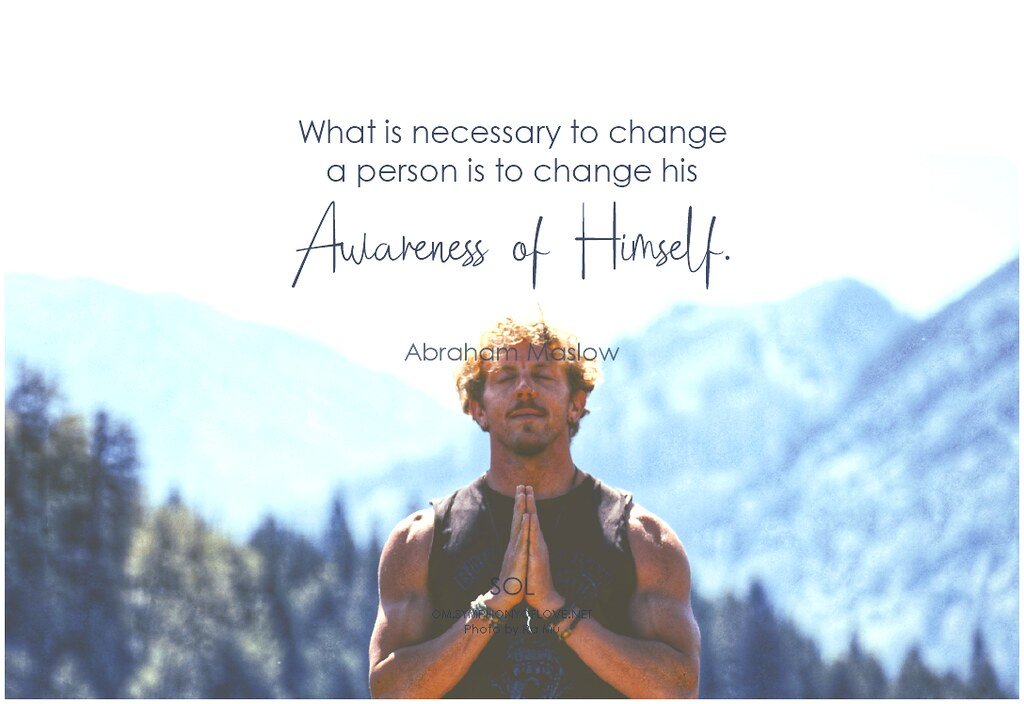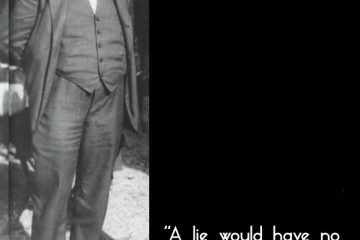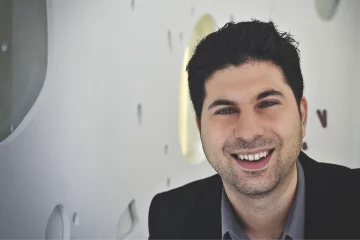
Click below to listen to this article:
Abraham Maslow
In this article, we will explore the life and works of Abraham Maslow, we will understand his ideas and legacy.
Abraham Maslow was one of the founders of humanistic psychology, a school of thought that emphasizes the potential and growth of human beings. He proposed a hierarchy of needs that explains human motivation and behaviour, from the basic physiological and safety needs to the higher needs of love, esteem, Self-actualization, and self-transcendence. Maslow’s theory has influenced many fields of psychology, such as positive psychology, which focuses on themes addressed by Maslow over 50 years ago.
Maslow also had an impact on society as a whole, as he advocated for a more humane and compassionate world. He believed that people are good if only their fundamental wishes are satisfied, their wish for affection and security. Maslow also encouraged people to overcome their fears and to pursue their true-selves. He said, “The science of psychology has been far more successful on the negative than on the positive side… It has revealed to us much about man’s shortcomings, his illnesses, his sins, but little about his potentialities, his virtues, his achievable aspirations, or his psychological health.” And he also said, “I have learned the novice can often see things that the expert overlooks. All that is necessary is not to be afraid of making mistakes, or of appearing naive.”
The life of Maslow
Maslow was born on April 1, 1908, in Brooklyn, New York, to poor Jewish immigrants from Russia. He had a lonely and unhappy childhood, as he was the eldest of seven children and often faced discrimination and ridicule from his peers. He sought refuge in books and libraries, where he developed a curiosity for learning and a passion for psychology. Maslow attended City College of New York, where he initially studied law to please his father, but later switched to psychology after transferring to the University of Wisconsin in 1928 (Britannica, n.d.). There, he was influenced by the humanistic approach of his mentor Harry Harlow, who studied the effects of love and affection on primates. Maslow earned his bachelor’s degree in 1930, his master’s degree in 1931, and his PhD in 1934 (Verywell Mind, 2023).
Maslow’s career spanned several academic institutions and research settings. He taught at Brooklyn College from 1937 to 1951, where he met and befriended other prominent psychologists such as Max Wertheimer, Alfred Adler, Erich Fromm, and Karen Horney. He also conducted research at Columbia University, where he studied human sexuality and personality. In 1951, he became the chair of the psychology department at Brandeis University, where he stayed until 1969. He also served as a visiting professor at Stanford University and the University of California, Berkeley. He spent the last years of his life in California, where he died of a heart attack on June 8, 1970 (PBS, n.d.).
Theory of Self-actualization
Maslow’s most notable contribution to psychology was his theory of Self-actualization, which he first introduced in his 1943 paper “A Theory of Human Motivation” and later elaborated in his 1954 book “Motivation and Personality”. He proposed that human needs can be arranged in a pyramid-like hierarchy, with the most basic physiological needs (such as food, water, and shelter) at the bottom, followed by safety needs (such as security and stability), social needs (such as belonging and love), esteem needs (such as respect and recognition), and finally Self-actualization needs (such as growth and fulfilment) at the top. He argued that only when the lower needs are sufficiently met can one move up the hierarchy and pursue higher goals. Maslow defined Self-actualization as “the desire for self-fulfilment, namely the tendency for him [the individual] to become actualized in what he is potentially” (Maslow, 1943, p. 382).
He believed that self-actualized people are those who have realized their true potential and express their unique talents and abilities. He identified some characteristics of self-actualized people, such as having a realistic perception of themselves and others, being creative and spontaneous, having a sense of humour and wonder, being independent and autonomous, having a strong ethical sense, being compassionate and empathetic, having peak experiences (moments of intense joy and transcendence), and being open to new experiences and challenges (Maslow, 1954).
Maslow’s theory of Self-actualization has been widely influential in various fields, such as education, management, health care, counselling, and spirituality. It has also inspired many other psychological theories and models, such as Carl Rogers‘ person-centred therapy, Mihaly Csikszentmihalyi’s flow theory, Martin Seligman’s positive psychology, and Carol Dweck’s growth mindset.
However, Maslow’s theory has also been criticized for being too vague, subjective, elitist, culturally biased, empirically unsupported, and overly optimistic. Some critics have argued that Maslow’s hierarchy of needs is not universal or fixed, but rather dynamic and context-dependent. Others have challenged the idea that Self-actualization is the ultimate goal of human existence or the highest expression of human nature. Despite these limitations and controversies, Maslow’s theory remains a popular and influential framework for understanding human motivation and potential.
Bibliography
Maslow’s bibliography includes many books and articles that explore his ideas and their applications. Some of his most notable works are:
Motivation and Personality (1954), which introduced his hierarchy of needs and discussed how it relates to personality development and psychological health.
Toward a Psychology of Being (1962), which expanded on his concept of Self-actualization and described the characteristics of self-actualizing people.
The Psychology of Science: A Reconnaissance (1966), which examined the role of creativity and curiosity in scientific discovery and innovation.
The Farther Reaches of Human Nature (1971), which was published posthumously and explored the implications of his theory for human potential, ethics, and social change.
Maslow’s writings are rich with insights and examples that illustrate his points. For instance, in Motivation and Personality, he wrote: “A musician must make music, an artist must paint, a poet must write, if he is to be ultimately happy. What a man can be, he must be” (Maslow, 1954, p. 93).
In Toward a Psychology of Being, he stated: “The fully human person is not just an ordinary person with something added but rather an ordinary person with nothing taken away” (Maslow, 1962, p. 3). And in The Farther Reaches of Human Nature, he declared: “The great lesson from the true mystics … is that the sacred is in the ordinary” (Maslow, 1971, p. 269).
References
Britannica. (n.d.). Abraham Maslow | Biography & Facts. Retrieved December 11, 2023 from https://www.britannica.com/biography/Abraham-H-Maslow
https://exploringyourmind.com/five-quotes-by-abraham-maslow/
Maslow A.H. (1943). A Theory of Human Motivation. Psychological Review, 50(4), 370–396.
Maslow, A. H. (1954). Motivation and personality. New York: Harper & Row.
Maslow, A. H. (1962). Toward a psychology of being. Princeton: Van Nostrand.
Maslow, A. H. (1966). The psychology of science: A reconnaissance. New York: Harper & Row.
Maslow, A. H. (1971). The farther reaches of human nature. New York: Viking Press.
PBS. (n.d.). Abraham Maslow | People & Discoveries | A Science Odyssey.
https://positivepsychology.com/abraham-maslow/
https://psychologyonlinecourses.com/abraham-maslow-humanistic-psychology-quotes/
https://succeedfeed.com/abraham-maslow-quotes/




0 Comments